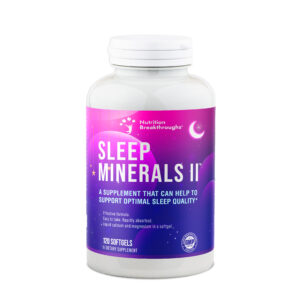 The link between what we eat and how we sleep is closely related, especially when it comes to consuming healthy fats.
The link between what we eat and how we sleep is closely related, especially when it comes to consuming healthy fats.
In an article from the journal “Endocrinology – An Integrated Approach” (endocrinology deals with the glands and hormones), the author writes that all hormones are made from cholesterol.
This includes estrogen, testosterone, progesterone, adrenal gland hormones, vitamin D, and the sleep hormone melatonin.
Eating healthy fats with our meals can play a vital role in helping us sleep better and achieve greater health, as these provide the basic building blocks for cholesterol production and hormones. The best fats to eat are nutrient rich foods like eggs, natural butter, olive oil, salmon, sardines, shrimp, cod liver oil, avocados and coconut oil. The less healthy fats are vegetable oils such as safflower oil, sunflower oil, canola oil and hydrogenated oils like those in margarine..
Milk is well-known for its positive effects on sleep, and dairy foods contain cholesterol, however some people are not able to digest dairy well and are better able to assimilate fermented dairy foods like yogurt and kefir. Milk also has the benefit of containing calcium, which has been found in studies to soothe insomnia.
In one study from the European Journal of Clinical Neurology, researchers tested the use of milk that was fermented with yogurt cultures for its effect on sleep quality. They discovered that there was a significant improvement in the time needed to fall asleep, as well as a reduced number of night time awakenings for the participants who drank the fermented milk daily. No significant changes in sleep were observed for the placebo group.
Regarding the use of minerals for better sleep, one study called “The Nutritional Relationships of Magnesium”, notes that the type of insomnia associated with a calcium deficiency causes difficulty with falling asleep. The classical sign of magnesium deficiency is insomnia characterized by falling asleep easily, but awakening frequently throughout the night, with individuals finding themselves tired even after several hours of sleep.
A balanced calcium magnesium ratio is important to overall health, and these two minerals should be taken together for best results, in a two to one ratio with twice as much calcium as magnesium. The original research on this recommended ratio appeared in 1935 in the Journal of Physiological Reviews.
In addition, a softgel form containing healthy carrier oils mixed with the minerals is more digestible than tablets or capsules and provides a deeper, longer-lasting sleep. One popular formula that has these qualities is Sleep Minerals II from Nutrition Breakthroughs. Sleep Minerals II contains highly absorbable forms of the best minerals for relaxation: calcium and magnesium, combined with vitamin d, zinc, and heart-healthy rice bran oil in a softgel.
Kimberly B. of Troy, Michigan says: “I have been taking Sleep Minerals II for about a month now. I have tried everything out there and this supplement is amazing. I have suffered with insomnia for 2 1/2 years. I have also had restless leg syndrome my entire life and this is the first relief I’ve ever had…gone for a month now.”
In summary, eating good healthy fats and also taking enough sleep-inducing minerals, can be a good combination for achieving better sleep.
For more information on Sleep Minerals II visit this information page.









